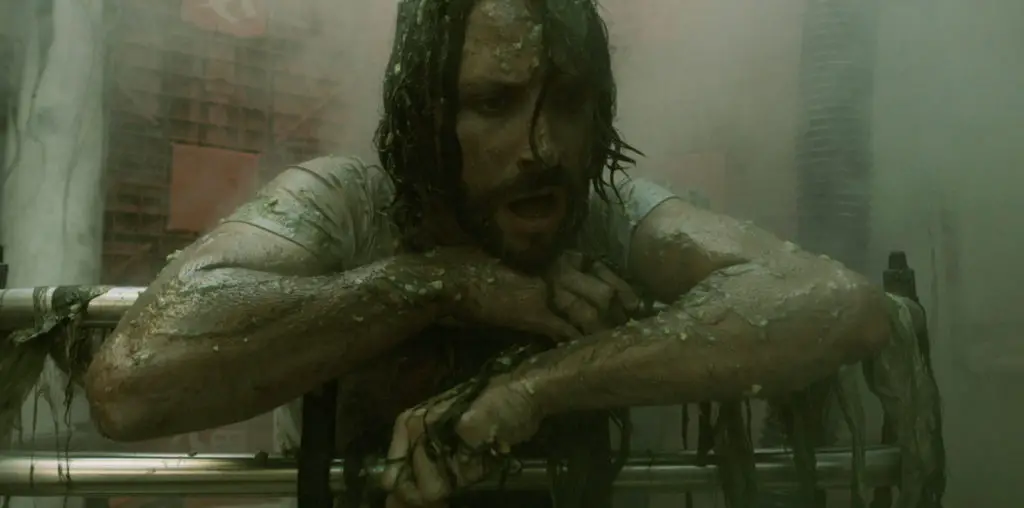
During the Golden Era of Hollywood, Joseph L. Mankiewicz was one of the most prolific, versatile and unpredictable creative talents behind the camera. A successful writer and producer within the studio system for nearly two decades, he came to directing relatively late in his career. Yet he made up for lost time with an extraordinary skein of highly-regard works: “The Ghost and Mrs. Muir,” “A Letter to Three Wives,” “No Way Out,” “All About Eve,” “Julius Caesar,” “The Barefoot Contessa,” “Guys and Dolls,” “Suddenly, Last Summer,” “Cleopatra” and “Sleuth.”
The new book “Joseph L. Mankiewicz: Interviews” presents the four-time Oscar-winner in his own words, through a collection of rare and insightful conversations about this remarkable career. Brooklyn-based writer and Mankiewicz historian Brian Dauth edited the book, which was recently published by the University Press of Mississippi.
Film Threat spoke with Dauth about the Mankiewicz canon and why his films continue to fascinate and entertain movie lovers.
Q: Why should today’s movie lovers take time to discover the films of Joseph L. Mankiewicz?
BRIAN DAUTH: For me, Mankiewicz was the greatest of the writer-directors who emerged in Hollywood in 1940’s. Preston Sturges was the first, followed by John Huston, Billy Wilder and Mankiewicz. All were motivated by a desire to “protect” their scripts from the mangling they felt their work received at the hands of insensitive directors.
Of these men, Mankiewicz had the most sophisticated visual style. One of the things I discovered in researching the book was that he envisioned the writing of a script as the first part of the job of directing a movie. He believed that a good screenwriter directs as he writes his screenplay. When someone else directs a script written this way, he is in essence re-directing what has already been directed. For Mankiewicz, the process of writing a script was to capture on paper the film that unspooled before his mind’s eye.
I think that this understanding of the close relationship between writing and directing is something that has been lost today. Mankiewicz himself realized that his type of film was going out of style as early as the late 1950’s. But despite changing fashions, he persevered, and “Sleuth,” his final film, is a fine example of Mankiewicz’s concept of the talking picture. I think today’s filmmakers could benefit greatly from watching Mankiewicz films and learning from an auteur who considered the word to be of equal importance to the image in filmmaking.
Mankiewicz worked as a screenwriter and a producer for 17 years before directing his first film, “Dragonwyck” in 1946. Why did it take him so long to direct?
Part of the reason was that the Hollywood studio system believed in dividing up the work involved in making movies. Writers and directors were considered interchangeable parts that could be moved from one film to another without any harm to the final product. When Mankiewicz moved from Paramount to MGM in 1936 it was with the intention to direct, but studio chief Louis B. Mayer made him a producer, telling Mankiewicz that he needed to crawl before he could walk, a comment Mankiewicz always maintained was the best definition of a producer that he had ever heard.
Although he had a distinguished career as a producer at MGM (earning an Academy Award nomination for Best Picture with “The Philadelphia Story” in 1940), Mankiewicz longed to direct. When he moved to Twentieth Century Fox in 1945, he was reunited with his mentor Ernst Lubitsch and finally allowed to direct. But even though Mankiewicz hated being a producer and spoke of his time at MGM as his “dark years,” I believe that the experience afforded him both the training and the perspective that enabled him to take command of the films he directed, even ones where he was not credited as producer. The stylistic and thematic consistency we see over the course of Mankiewicz’s career is due in part to his years spent as a producer at MGM.
Mankiewicz was responsible for directing Marlon Brando in two of the actor’s most surprising performances: as Marc Antony in “Julius Caesar” and Sky Masterson in “Guys and Dolls.” Few people would’ve thought of casting Brando in Shakespeare or musical comedy – do you believe Mankiewicz brought out Brando’s best in these films?
Mankiewicz was a gifted director of both actresses and actors. With Brando, he believed he was working with the greatest actor of his time. In fact, Mankiewicz said that Brando’s recitation of Antony’s funeral oration was the most thrilling moment he had ever experienced on a movie set.
I have always enjoyed Brando’s performances in both “Julius Caesar” and “Guys and Dolls,” with his Sky Masterson being a special favorite. Mankiewicz’s decision to use Brando’s and Jean Simmons’s actual singing voices was a brilliant choice, as well as a daring one since the dubbing of non–singers was standard practice in Hollywood at the time (and for many years to come). Brando’s version of “Luck Be a Lady,” while not presenting a vocal challenge to that of his co-star Frank Sinatra (who longed to play the part), is in perfect keeping with Brando’s performance of the role: Masterson as both ultimate high stakes gambler and vulnerable, desiring lover.
Mankiewicz’s career was derailed by the “Cleopatra” debacle. But how much of the film’s failure can be blamed on him?
Very little actually. In fact, whatever is good about the film (and there is much that is fine) is attributable to Mankiewicz. He took over an impossible production (in what he later called “an act of admitted whoredom”) and ended up writing at night and filming during the day. He had both to contend with the daunting logistics of making an epic like “Cleopatra” and to deal with the publicity firestorm over Elizabeth Taylor’s affair with Richard Burton. In the hands of any director less gifted than Mankiewicz, the film would have been a disaster.
But his years of experience as a writer/director/producer (and Mankiewicz was the de facto producer on “Cleopatra” though he did not receive screen credit as such) allowed him not only to make a great movie, but his kind of picture as well. One of the most lamentable facts about the movie is the almost certain loss of the scenes deleted by Darryl F. Zanuck when he took the film away from Mankiewicz and re-cut it.
Also, the film’s reputation as a failure is misplaced. As Mankiewicz points out in a late-in-life interview (for years he refused to speak about the movie) included in the book, the movie made money. What “Cleopatra” did represent was the closing of a way of life in Hollywood: the studios and their huge staffs and back lots were soon to become things of the past. I believe that an “end-of-an-era” aura is associated with “Cleopatra” that gives some people the idea that the film itself is not a success.
In compiling the interviews with Mankiewicz that you compiled for this book, did you learn anything about the filmmaker of which you were previously unaware?
While I have always maintained that Mankiewicz was a better director in terms of visual composition than he has been given credit for (even by his admirers), in the process of researching the book I discovered how much careful attention Mankiewicz paid to the images in his films. Mankiewicz’s style was never expressionistic or surrealistic. He was devoted to capturing the societal workings of human beings in almost clinical detail and developed a cool, even distant/Brechtian, style that was imbued with a profound sense of the theatrical nature of life.
Mankiewicz’s conception of existence as performance has often been misunderstood as “staginess” with his scripts dismissed as more appropriate for Broadway than Hollywood. But Mankiewicz created his images with words in mind. In fact, Mankiewicz produced an intricate visual/verbal matrix in which each component plays off of, as well as draws strength from, the other. Framing and movement/gesture within the frame are intricately linked to what is heard on the soundtrack. The nuances and subtleties of Mankiewicz’s films in this regard are long overdue for serious critical investigation.
Out of the entire Mankiewicz canon, which film stands out as his finest work? And which film of his is deserving of more positive attention then it currently receives?
Although it will seem a cliché, “All About Eve” is Mankiewicz’s finest film and the pinnacle of what Mankiewicz himself dubbed “the talking film” – a perfect amalgam of script, direction, and acting in black-and-white and Academy ratio. But as is true with most peaks, having been reached, it was downhill from there on. Hollywood was about to embrace color and widescreen in an effort to hold on to dwindling audiences who were abandoning cities and movie palaces for suburbia and television.
Mankiewicz himself was one of the lucky filmmakers who were successful in navigating this new Hollywood as he embraced the roles of both independent producer and director-for-hire. He continued to make talking pictures, but now they turned up in the guise of the musical (“Guys and Dolls”), the Southern gothic (“Suddenly, Last Summer”) and the epic (“Cleopatra”). Mankiewicz also made a Western, “There Was a Crooked Man…” from a script by Robert Benton and David Newman who had just written “Bonnie and Clyde.”
Although “Crooked Man” came out during the era of the revisionist Western, it shares only slight kinship with the work of Sam Peckinpah or Sergio Leone. Released on Christmas Day in 1970 after a year’s delay, the film was neither a commercial nor critical success. I always considered it among Mankiewicz’s lesser accomplishments, but watching it recently on DVD, I realized that once again he had made a talking picture – this one masquerading as a hybrid Western/prison break film.
Mankiewicz’s compositions, precise as ever, often call to mind the work of John Ford, whose films are also invoked with the casting of Henry Fonda in a leading role. The movie also explores a favorite Mankiewiczean concern: the relationship between a person and her society and the mutual responsibilities engendered as a result. While not a flawless film, “Crooked Man” now seems a better one than almost anyone thought at the time of its release, and a movie in definite need of re-evaluation.

